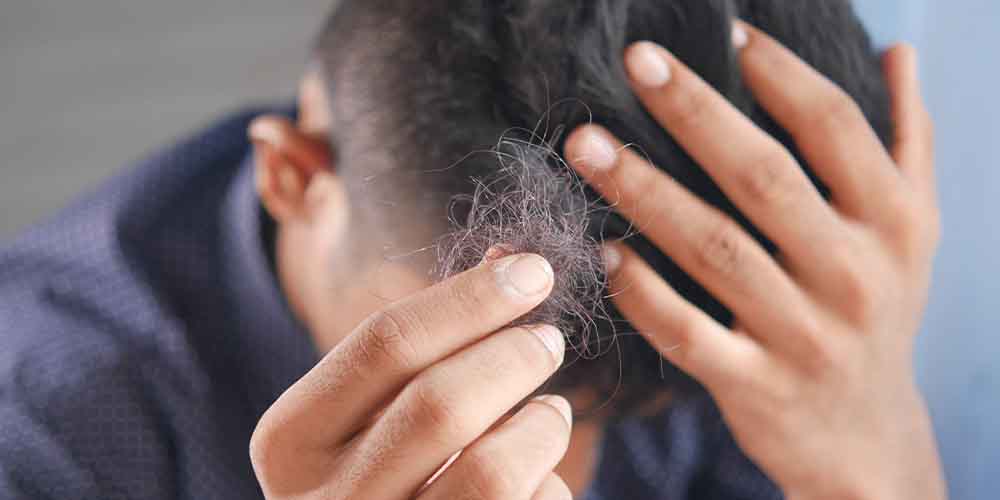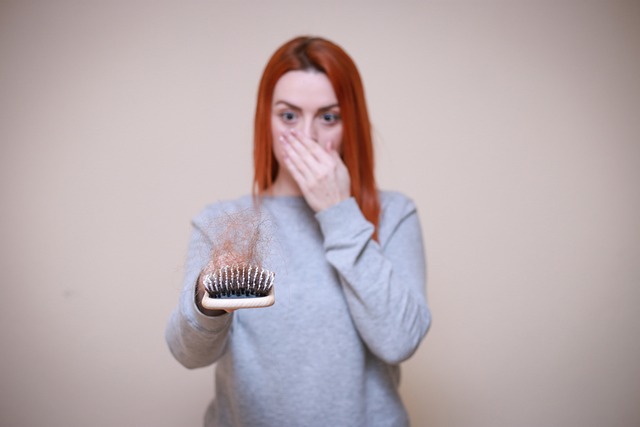
Does Gabapentin Cause Hair Loss? Click Here!
When it comes to taking drugs like gabapentin, some unwanted effects may occur, which have been said to include hair loss. But does gabapentin cause hair loss?
Yes, gabapentin can cause hair loss, but not in everyone. Drug-induced alopecia or drug-induced hair loss are terms used to describe when a drug results in hair loss.
Even though gabapentin rarely causes hair loss, it can happen. In some individuals, gabapentin may disrupt the regular cycle of scalp hair growth, resulting in hair loss and inhibiting hair growth.
Table of Contents
What is Gabapentin?
FDA-approved anticonvulsant medication gabapentin is available by prescription only. It is used to treat herpes zoster nerve damage and seizure disorders, including shingles and postherpetic neuralgia (PHN). Off-label uses, or those not approved by the FDA, include:
- restless leg syndrome
- diabetic neuropathy
- hyperhidrosis
- fibromyalgia
- hot flashes
Since 2004 gabapentin has been obtainable as a generic drug. It’s also offered under the brand names Gralise and Neurontin in the US.
In 2016, 64 million prescriptions for gabapentin were written in the United States, ranking it as the tenth most frequently prescribed drug.
The Facts About Gabapentin and Hair Loss
Although it should be noted that none of the evidence is currently conclusive, there is some evidence to suggest that gabapentin may cause hair loss.
Hair “disorder” is mentioned in FDA labeling records from 2010, calling it an “infrequent” side effect. To some extent, we can infer that a disorder of the hair will probably involve problems with growth, but this is far from certain.
We also have anecdotal data that lends credence to the possibility.
According to a 2011 article, “… hair loss might be a lasting effect of [gabapentin] treatment, though not listed by the company.” 17 years after the drug’s initial commercialization, this article was written.
Due to a third piece of evidence, the two previously mentioned may be true. A 2009 letter in the Journal of Pain and Symptom Management detailed a patient’s experience taking gabapentin for a neurologically induced “burning sensation.”
The patient claimed that the burning sensation was less of a problem than the significant hair loss, or patchy alopecia, that she had noticed after one week.
According to the letter, the scientists thought they were observing one of the first instances of alopecia as a side effect.
Researchers added that after a few months, the hair loss stopped and the hair started to grow again.
Is it possible that this qualifies as a side effect? If you choose to take gabapentin, it should undoubtedly be something you keep an eye out for.
Although no studies appear to have formally investigated a link between gabapentin use and hair loss, the drug isn’t exactly commonly used, so the relatively low number of reported cases may be due to the relatively low number of people using this antiepileptic drug.

Will Hair Grow Back After Stopping Gabapentin?
The majority of the time, hair eventually grows back after stopping a medication. In 3 to 6 months, you should start to notice your hair growing back, though it occasionally takes longer to reach your original hair’s full potential. It occasionally doesn’t fully regenerate.
Avoid stopping a prescription medication suddenly without consulting a doctor. In order to avoid serious side effects like seizures, you must gradually stop taking some medications (including gabapentin).
In the event that you suspect a medication you’re taking is the cause of any recent hair loss, your doctor may advise stopping the medication for three or more months and, if an alternative is available, may suggest it.
Read about Can Toner Make Your Hair Fall Out
Side Effects of Gabapentin
Men who take gabapentin may experience a variety of side effects, such as memory loss, anxiety, headaches, dizziness, drowsiness, fatigue, heartburn, increased appetite, weight gain, uncontrollable eye movements, unsteadiness, double or blurred vision, swelling of the extremities, back or joint pain, fever, and more. The full list is available here, but you get the idea.
If you notice any of these symptoms, you should speak with your doctor, but if you also notice a rash, itching, hoarseness, swelling of the face, throat, tongue, lips, or eyes, difficulty breathing, or other symptoms, you should get help right away.
Please read the entire list if you are currently taking this medication.
Could some of those include adverse effects on the hair? Well, yes.
How is Drug-induced Hair Loss Treated?
Once you’ve stopped taking the medication, it’s likely that your hair will regrow on its own. Consider using drugs like minoxidil (Rogaine) or finasteride (Propecia) if your hair continues to thin after you stop taking the drug. These drugs may help slow hair loss and promote new hair growth.
Before taking any medication, talk to your doctor to determine whether it is appropriate for your specific situation.
So, Does Gabapentin Cause Hair Loss?
Though not a common side effect, gabapentin may infrequently cause alopecia (hair loss) in some people.
It can also have the opposite effect, resulting in hair growth (hirsutism) and dermatological conditions like eczema and dry skin. Gabapentin is less likely to cause hair loss than other antiepileptic medications.
A potent and frequently prescribed medication known as gabapentin (Neurontin, Gralise) has been shown to be effective in treating a variety of conditions. You should talk to your doctor both before and during treatment about any side effects, including the possibility of hair loss.



